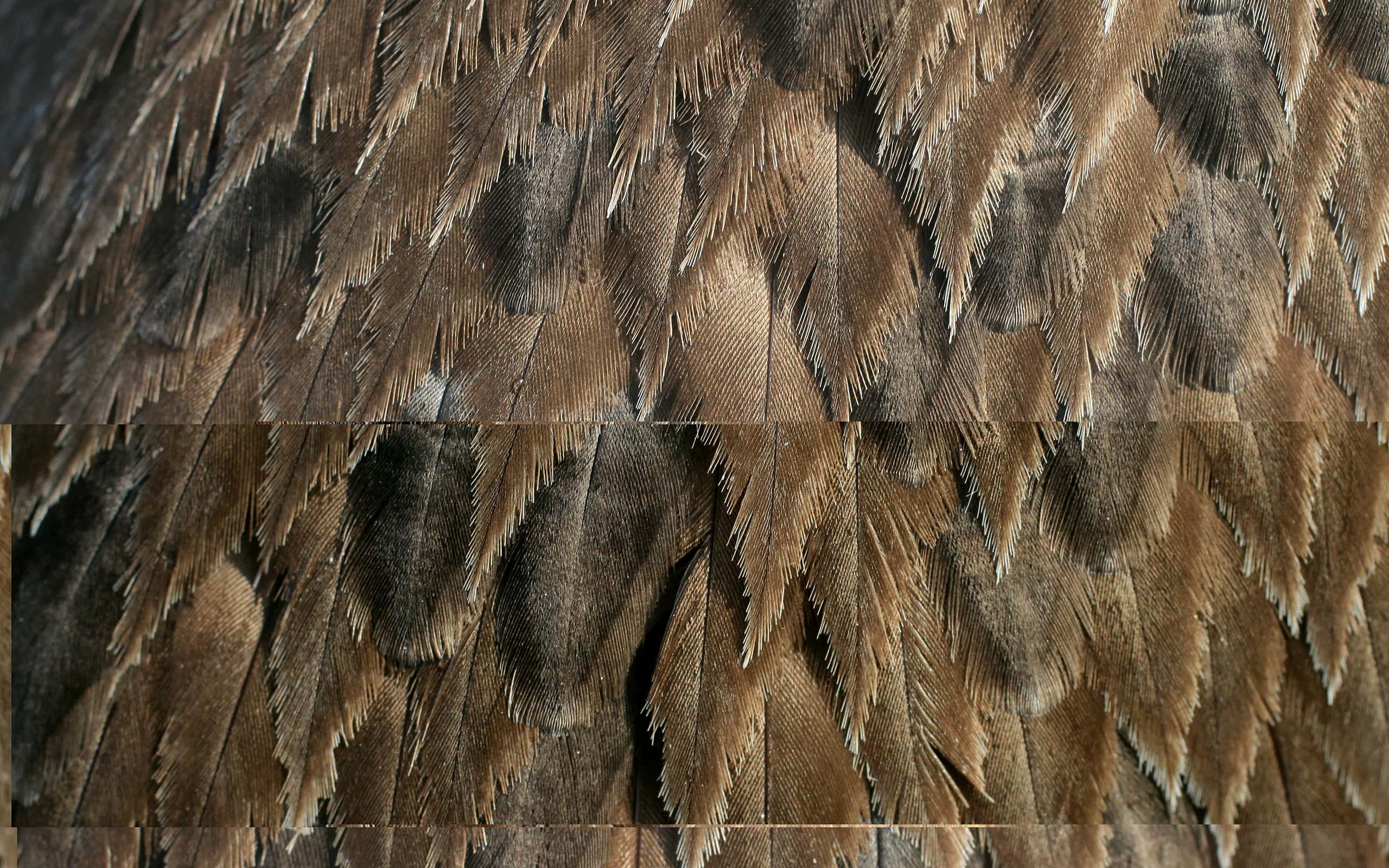Have you ever wondered about the symbolism of finding a feather on the ground? Since ancient times, people everywhere have looked to the world around them for signs and messages from their gods or nature itself. One of the most constant and wide-reaching symbols recorded is that of the feather. To be fair, birds are abundantly common in nearly every country, and most naturally lose their feathers at least twice a year in a molt — so finding feathers has always been relatively common. Each feather, whether black, grey, white, or brown, offers symbolism and meaning to many.
Our ancestors saw great meaning in feathers and even tied specific meanings to different colors of feathers. In general, feathers carry meanings of freedom, escape, and connection to the gods or spirits, drawing on a bird’s natural and enviable ability to fly. Here, we’ll dive deeper into feather symbolism from around the world and specifically the meaning behind brown feathers.
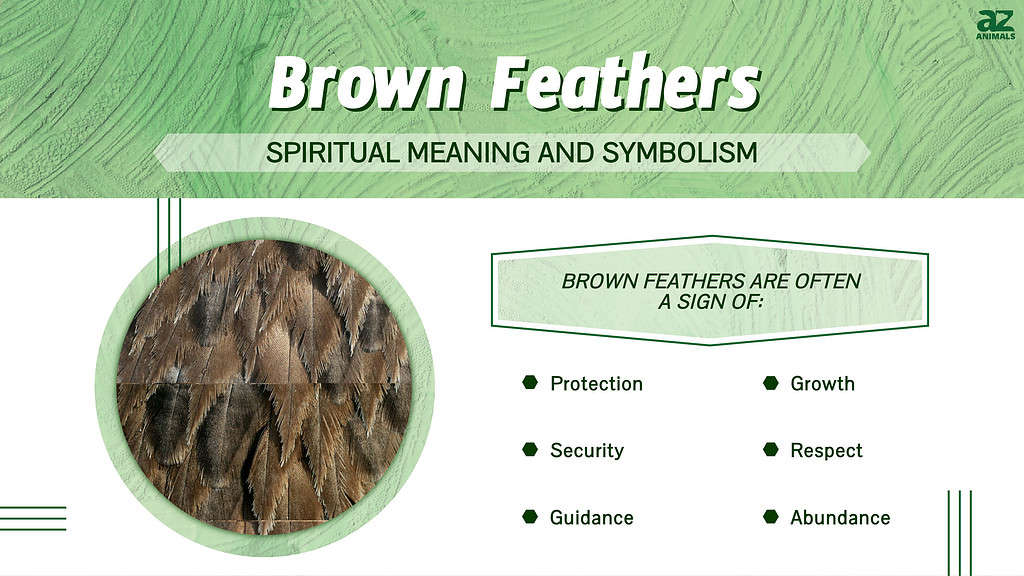
The Role of Feathers in Spirituality
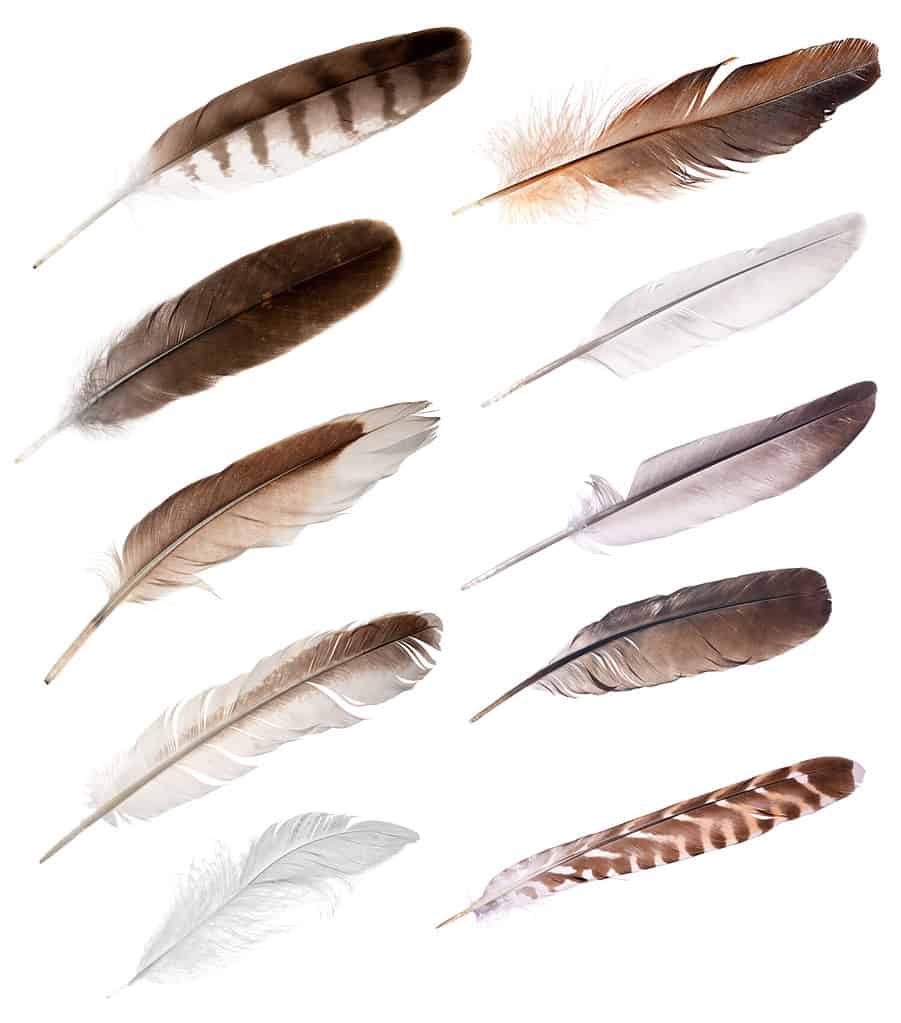
The variety of colors and patterns on feathers changes from bird to bird.
©Potapov Alexander/Shutterstock.com
Cultural and religious traditions around the world hold feathers as significant symbols, key objects in rituals, and gifts to the gods. In addition, feathers often adorn ceremonial robes and headdresses, significant tools used during ceremonies like fans or smoking pipes, and many more key objects. Different cultures vary somewhat on the specifics, but given the diversity of common birds in different parts of the world, it’s no wonder the same object (like a feather) can have so many varied meanings. Let’s explore a few!
Paganism
Originating from pre-Christian Europe but now practiced globally, Paganism reveres feathers as connections to the divine and conduits for spiritual communication. Feathers are thought to transcend the physical realm, based on a bird’s inherent connection with the heavens through flight. Pagans also see feathers as a reminder of the strength of our unburdened spirit and the vast potential of the soul.
Celtic Traditions
In Celtic folklore and spirituality, feathers signify the divinity of a god or mythical creature while also hinting at their supernatural powers. Celts saw birds themselves as messengers of the gods, so loose feathers also carried messages for the finder. Some significant deities were also tied directly to feathers. For example, the Morrigan is a prominent Celtic goddess of battle and sovereignty who’s closely tied to feathers through her ability to shapeshift.
Shamanism
Feathers have been an essential part of shamanic traditions for hundreds of years. They serve a variety of purposes that range from communicating with the spirit world to healing the sick. Shamans take great care to collect their feathers in a way that brings no harm to the bird. They seek only to find them on the ground or collect them by asking the bird’s permission. Fun fact — the word “shaman” originates from a Siberian tribe, the Tungus, and “shamanism” as a term now encompasses the religious and cultural practices of native tribes worldwide.
Native American traditions can fall under shamanism, though the catch-all term ignores the obvious differences between cultures. Birds play powerful roles in the folklore and beliefs of different nations, so it makes sense that feathers also hold great importance. Chieftains often gifted eagle feathers to warriors after a successful battle or a particularly brave act.
Aztec Traditions
Throughout Mesoamerica, feathers held value similar to that of jade or turquoise. The Aztecs chose their capital, Tenochtitlan, after they witnessed a bird eating a snake atop a cactus. Also, feathers bedeck some of the most prominent Aztec gods, pointing to their significance throughout Aztec culture. For example, Huitzilopochtli — whose name translates to “Hummingbird of the Left” — is the god of the sun and war, thought to bring back warriors who fell in battle as hummingbirds. Their bright, flashy colors represented their courage and sacrifice. Similarly, the feathered serpent Quetzalcoatl presides as one of the gods of creation, as well as the god of learning and wind.
African Cultures
The African continent is remarkably vast and contains so many diverse cultures that drawing comparisons can be difficult. However, their shared reverence of feathers and the birds they come from unites many of these cultures. For example, the Zulu, Venda, and Voortrekker cultures use feathers in marriage ceremonies. Meanwhile, the bright feathers of the Turaco represent societal status and high esteem for the Cameroonian, Zulu, and Maasai cultures.
The Significance of Specific Birds
In addition to the importance of color or pattern in a feather, the source of the feather is also considered significant. For example, pagans believe owl feathers represent wisdom and insight. Some Native American cultures, though, regard owl feathers as warnings of danger or bad luck. Eagle feathers are generally associated with bravery, courage, and success in battle. The Celtics also add clarity of insight to an eagle feather’s meaning.
The Symbolism of Brown Feathers
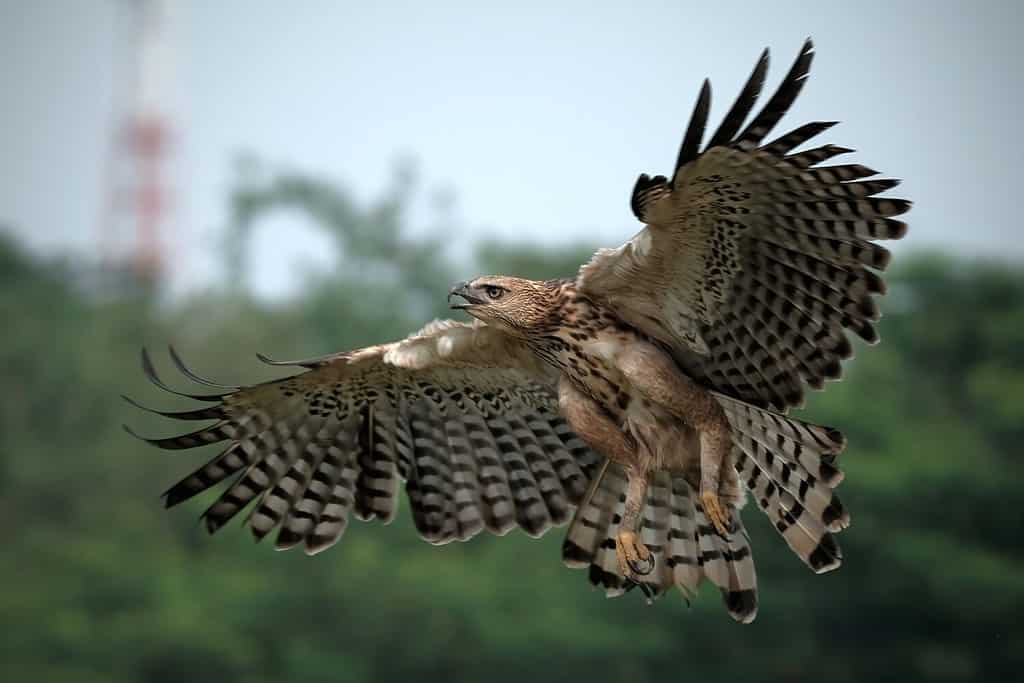
Hawks and other birds of prey are revered sources of feathers.
©Riadi Pracipta66/Shutterstock.com
Due to how common brown feathers are around the world, finding just one accepted meaning is difficult. Meanings change based on region, culture, religion, and many other factors. However, there seems to be a common thread with brown feathers — an associated meaning of earthiness, connection, safety, and other similar concepts. Whether a feather’s meaning is positive or negative also depends on culture, as well as what bird the feather came from.
In some cases, finding a brown feather can indicate a lack of stability in your life. Brown feathers can also signify concepts of home and respect. In some Native American cultures, brown feathers are related to protection, safety, and security. They’re also a sign of guidance, of upcoming big news, or of opening up oneself to new opportunities.
The Celtics connected brown feathers to the fertility and fire festival of Beltane. The feathers carry the transformative energies of the season, as well as messages of fertility, abundance, and growth.
Few feathers are just one color, though. What does it mean to find a white and brown feather or a black and brown one? Multicolored feathers combine the meanings of each color. So, a white and brown feather combines the holiness and purity of white with the stability or guidance of brown.
The Significance of Birds with Brown Feathers
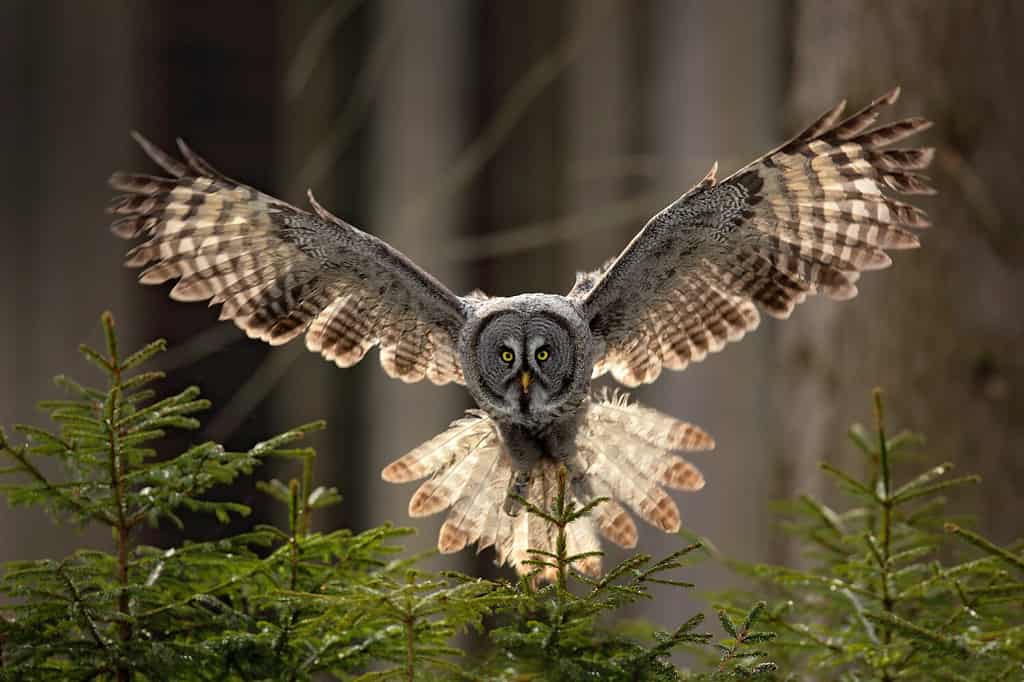
Owl feathers vary in meaning from bad luck to wisdom, depending on which cultural lens you view them through.
©Ondrej Prosicky/Shutterstock.com
Many different birds have brown feathers, and in many cases, the source of a feather can change its meaning. For example, a brown feather from an eagle carries the significance of its owner, namely strength and holiness. This can amplify the feather’s message or signify that it’s directly from the gods.
Some birds that scavenge for their food, like vultures, crows, and some hawks, bear a reputation for bad luck just because of their diet. Many cultures associate feathers from these birds with warnings from the spirits.
Many owls have brown feathers in their wings, so a brown feather can also represent knowledge and wisdom — though we’ve already discussed the varying views on owls.
Signs and Messages from Spirit Guides
Many cultures view birds as messengers from gods and spirits. So it’s no wonder that feathers from these birds are also interpreted as messages from the realms beyond. Many cultures believe that if a feather falls in front of you, your guardian angel or spirit guide is nearby. If you find a feather floating, a departed loved one may be watching over you.
So if you find a brown feather, consider the message your spirit guide or loved one may be sending you — one of guidance, a warning of lack of stability, or foretelling growth and abundance.
Thank you for reading! Have some feedback for us? Contact the AZ Animals editorial team.

